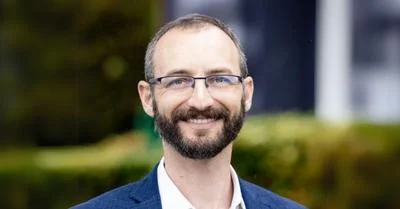Mohsen Shahandashti, associate professor of civil engineering at The University of Texas at Arlington, is assessing the market potential of a risk-based assessment framework for urban water infrastructure after natural disasters.
For his project, he received a grant from the National Science Foundation’s (NSF) Innovation Corps, known as the I-Corps program, which uses experiential education to help researchers gain valuable insight into entrepreneurship, starting a business, industry requirements and other challenges.
The assessment framework Shahandashti hopes to bring to market developed from a previous project funded by a 2019 NSF grant.
“We have proof of concept, and the potential impact of this grant in bringing the concept to market for widespread distribution is significant,” he said. “We can bring our research one step further and translate it to technology that can be used in industry.”
Financiers and investment planners work with risk and assess it each day. Shahandashti’s research took those same principles of risk aversion and applied them to engineering and modeling methods to determine which parts of urban water pipeline systems should be replaced to withstand earthquakes.
Water access can be difficult after major quakes. Following the 1994 earthquake in Northridge, California, for example, residents were without water for about a week, and firefighters were unable to put out fires because of damage to the city’s pipeline system. That earthquake was a 6.7 magnitude, compared to more recent 6.4 and 7.1 magnitude earthquakes in southern California.
Shahandashti developed an algorithm that models the effects of earthquakes on water pipeline infrastructure, determining the vulnerabilities by considering significant seismic and network uncertainties. The model determines how best to use limited infrastructure funding to make pipelines less prone to earthquake damage.
Jay Rosenberger and Victoria Chen—both professors in the Industrial, Manufacturing and Systems Engineering Department—and civil engineering Professor Simon Chao are co-principal investigators on the project.
Shahandashti said he hopes his research and the resulting product will allow cities to more accurately predict where pipelines are most vulnerable so they can proactively repair and replace pipes and avoid water outages.
Original source can be found here.


 Alerts Sign-up
Alerts Sign-up